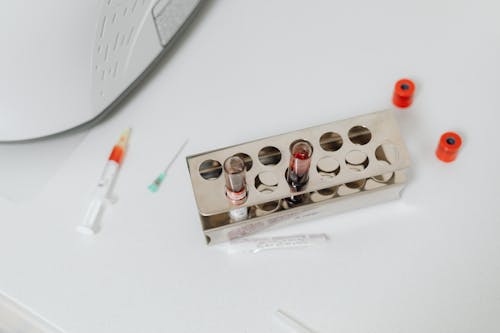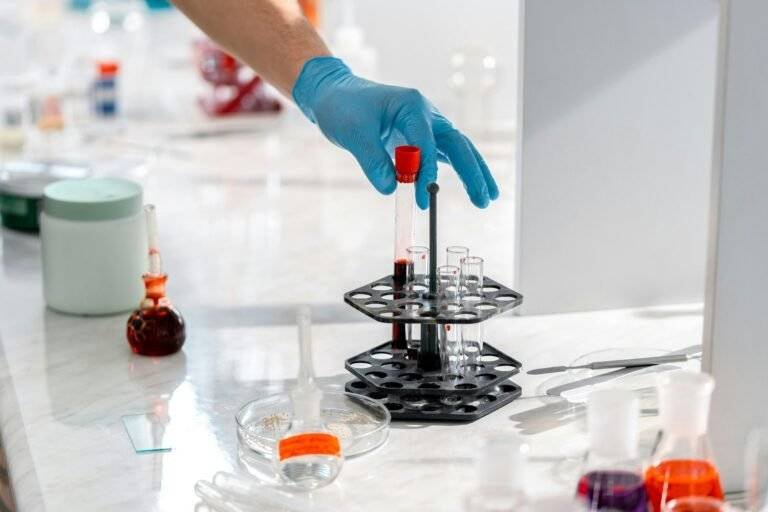Discover the True Cost of a Genomic Test for Cancer

-
Table of Contents
- Understanding The Costs: How Much Is A Genomic Test For Cancer?
- Breaking Down Expenses: How Much Is A Genomic Test For Cancer?
- Financial Planning: How Much Is A Genomic Test For Cancer?
- Insurance And Pricing: How Much Is A Genomic Test For Cancer?
- Comparing Providers: How Much Is A Genomic Test For Cancer?
- Budgeting For Health: How Much Is A Genomic Test For Cancer?
- Q&A
- Conclusion
“Unlocking Answers: Genomic Cancer Tests Starting at $300.”
Understanding The Costs: How Much Is A Genomic Test For Cancer?
Understanding the costs associated with genomic testing for cancer is crucial for patients, healthcare providers, and policymakers alike. As precision medicine continues to evolve, genomic tests have become an integral part of cancer diagnosis and treatment planning. These tests analyze the DNA of cancer cells to identify mutations that may be driving the growth of the tumor, thereby enabling more targeted and effective treatment strategies. However, the financial implications of these tests can be significant, and understanding the factors that influence their cost is essential.
The cost of a genomic test for cancer can vary widely, depending on several factors. One of the primary determinants is the type of test being conducted. Comprehensive genomic profiling, which examines a broad range of genes, tends to be more expensive than tests that focus on a single gene or a small panel of genes. The complexity of the test, the technology used, and the depth of analysis required all contribute to the overall cost. For instance, next-generation sequencing (NGS) technologies, which allow for the simultaneous analysis of multiple genes, are generally more costly than traditional sequencing methods.
Another factor influencing the cost is the specific cancer type being tested. Some cancers have well-established genomic markers that are routinely tested, while others may require more extensive analysis to identify relevant mutations. Additionally, the cost can be affected by whether the test is conducted in-house at a hospital or clinic, or outsourced to a specialized laboratory. In-house testing may offer cost savings due to reduced logistical expenses, but not all facilities have the necessary equipment or expertise to perform these complex analyses.
Insurance coverage is another critical aspect that affects the out-of-pocket cost for patients. While some insurance plans cover genomic testing for certain types of cancer, coverage can vary significantly between providers and policies. Patients may need to navigate a complex landscape of pre-authorization requirements and coverage limitations. In some cases, financial assistance programs offered by testing companies or non-profit organizations may help alleviate the burden of high costs for eligible patients.
Moreover, the cost of genomic testing is not static and may change over time. As technology advances and becomes more widely adopted, the cost of these tests may decrease. However, the introduction of new and more sophisticated tests could also lead to higher costs. It is important for patients and healthcare providers to stay informed about the latest developments in genomic testing and their potential financial implications.
In conclusion, the cost of a genomic test for cancer is influenced by a multitude of factors, including the type and complexity of the test, the specific cancer being analyzed, and the availability of insurance coverage. As genomic testing becomes an increasingly important tool in the fight against cancer, understanding these costs is essential for making informed decisions about patient care. By considering the various elements that contribute to the cost, patients and healthcare providers can better navigate the financial aspects of genomic testing and ensure that it is used effectively to improve cancer treatment outcomes.
Breaking Down Expenses: How Much Is A Genomic Test For Cancer?
The cost of genomic testing for cancer can vary significantly, influenced by a multitude of factors that contribute to the overall expense. As precision medicine continues to evolve, genomic testing has become an invaluable tool in the diagnosis and treatment of cancer, offering insights that can guide personalized treatment plans. However, understanding the financial implications of such testing is crucial for patients and healthcare providers alike.
To begin with, the type of genomic test being conducted plays a pivotal role in determining the cost. Broadly, genomic tests can range from targeted gene panels, which focus on specific genes known to be associated with certain cancers, to whole-genome sequencing, which provides a comprehensive analysis of an individual’s entire genetic makeup. Targeted gene panels are generally less expensive, with costs typically ranging from a few hundred to a few thousand dollars. In contrast, whole-genome sequencing is more costly, often exceeding several thousand dollars due to the extensive data analysis required.
Moreover, the complexity of the cancer being tested can also impact the cost. Some cancers may require more extensive testing to identify the genetic mutations involved, thereby increasing the expense. Additionally, the technology and equipment used in the testing process can influence the price. Advanced technologies that offer higher accuracy and faster results may come at a premium, reflecting the investment in cutting-edge research and development.
Insurance coverage is another critical factor that affects the out-of-pocket cost for patients. While some insurance plans may cover genomic testing, especially if it is deemed medically necessary, others may not, leaving patients to bear the full cost. It is essential for patients to consult with their insurance providers to understand the extent of coverage available for genomic testing. In some cases, financial assistance programs may be available to help offset the costs for eligible patients.
Furthermore, the choice of laboratory or testing facility can also influence the cost. Different laboratories may have varying pricing structures based on their expertise, reputation, and the quality of services provided. It is advisable for patients to research and compare different options to find a facility that offers a balance between cost and quality.
In addition to the direct costs of the test itself, there are often ancillary expenses to consider. These may include consultations with genetic counselors, who play a crucial role in interpreting test results and advising on subsequent steps. The cost of follow-up tests or treatments based on the genomic test results can also add to the overall financial burden.
In conclusion, while genomic testing for cancer offers significant benefits in terms of personalized treatment and improved outcomes, it is accompanied by a range of costs that can vary widely. Patients and healthcare providers must navigate these financial considerations carefully, taking into account the type of test, insurance coverage, choice of laboratory, and potential additional expenses. By understanding these factors, patients can make informed decisions about their care, ensuring that they receive the most appropriate and cost-effective treatment options available. As the field of genomic medicine continues to advance, it is hoped that the costs associated with these tests will become more accessible, allowing a broader range of patients to benefit from the insights they provide.
Financial Planning: How Much Is A Genomic Test For Cancer?
When considering the financial implications of healthcare, particularly in the realm of cancer treatment, genomic testing has emerged as a significant factor. Genomic tests for cancer are designed to analyze the DNA of cancer cells, providing insights into the genetic mutations that may be driving the growth of a tumor. This information can be crucial for tailoring personalized treatment plans, potentially improving outcomes for patients. However, the cost of these tests can vary widely, making financial planning an essential component of the decision-making process.
The price of genomic testing for cancer is influenced by several factors, including the type of cancer, the specific test being conducted, and the healthcare provider or laboratory performing the analysis. On average, the cost of a genomic test can range from a few hundred to several thousand dollars. For instance, a basic test that examines a limited number of genes might cost around $300 to $500. In contrast, more comprehensive tests that analyze a broader array of genetic markers can exceed $5,000. These tests are often more expensive due to the complexity and depth of the analysis required.
Insurance coverage plays a pivotal role in determining the out-of-pocket expenses for patients undergoing genomic testing. Many insurance providers recognize the value of these tests in guiding treatment decisions and may cover a portion or even the entirety of the cost. However, coverage can vary significantly depending on the insurance plan, the specific test, and whether the test is deemed medically necessary. Patients are advised to consult with their insurance providers to understand the extent of coverage and any potential co-pays or deductibles that may apply.
In addition to insurance considerations, some patients may have access to financial assistance programs offered by testing companies or non-profit organizations. These programs are designed to alleviate the financial burden for patients who may not have adequate insurance coverage or who are facing financial hardship. Eligibility for such programs typically depends on factors such as income level and insurance status, and patients are encouraged to explore these options as part of their financial planning.
Furthermore, the cost of genomic testing should be weighed against the potential benefits it offers. By identifying specific genetic mutations, these tests can help oncologists select targeted therapies that are more likely to be effective, potentially reducing the need for costly and less effective treatments. In some cases, genomic testing can also identify patients who may benefit from clinical trials, providing access to cutting-edge therapies at reduced or no cost.
As genomic testing becomes increasingly integrated into standard cancer care, it is important for patients and their families to engage in open discussions with their healthcare providers about the potential costs and benefits. This dialogue can help ensure that patients make informed decisions that align with their medical needs and financial circumstances. Additionally, as technology advances and the demand for personalized medicine grows, it is anticipated that the cost of genomic testing will continue to evolve, potentially becoming more accessible to a broader range of patients.
In conclusion, while the cost of genomic testing for cancer can be substantial, understanding the factors that influence pricing and exploring available financial resources can help patients navigate this complex landscape. By doing so, they can make informed decisions that support both their health and financial well-being.
Insurance And Pricing: How Much Is A Genomic Test For Cancer?
The cost of genomic testing for cancer can vary significantly, influenced by a multitude of factors including the type of test, the complexity of the analysis, and the healthcare system in which the test is conducted. As genomic testing becomes an increasingly integral part of personalized medicine, understanding the financial implications is crucial for patients and healthcare providers alike. The price of these tests can range from a few hundred to several thousand dollars, depending on the specific requirements and the depth of analysis needed. For instance, a simple test that looks for a single genetic mutation may be relatively inexpensive, whereas comprehensive genomic profiling that examines multiple genes or the entire genome can be considerably more costly.
Insurance coverage plays a pivotal role in determining the out-of-pocket expenses for patients undergoing genomic testing. Many insurance companies are beginning to recognize the value of these tests in guiding treatment decisions and improving patient outcomes. Consequently, some insurers offer partial or full coverage for genomic tests, particularly when they are deemed medically necessary. However, coverage policies can vary widely between different insurance providers and even among different plans offered by the same insurer. It is essential for patients to consult with their insurance company to understand the specifics of their coverage, including any potential co-pays or deductibles that may apply.
In addition to insurance, other factors can influence the cost of genomic testing. The location where the test is performed can impact pricing, as tests conducted in specialized research institutions or private laboratories may have different pricing structures compared to those performed in standard hospital settings. Furthermore, the rapid pace of technological advancements in genomic testing can also affect costs. As new technologies emerge and become more widely adopted, the cost of testing may decrease over time, making it more accessible to a broader range of patients.
For those without insurance or with limited coverage, financial assistance programs may be available to help offset the cost of genomic testing. Some testing companies offer financial aid or sliding scale fees based on income, while certain non-profit organizations provide grants or subsidies to eligible patients. It is advisable for patients to explore these options and discuss them with their healthcare providers to ensure they receive the necessary testing without undue financial burden.
Moreover, the value of genomic testing extends beyond the immediate financial considerations. By providing detailed insights into the genetic makeup of a patient’s cancer, these tests can inform more targeted and effective treatment strategies. This personalized approach can potentially lead to better outcomes and, in some cases, reduce overall healthcare costs by avoiding ineffective treatments. Therefore, while the upfront cost of genomic testing may seem substantial, the long-term benefits in terms of treatment efficacy and patient quality of life can be significant.
In conclusion, the cost of genomic testing for cancer is influenced by a variety of factors, including the type of test, insurance coverage, and technological advancements. While the financial aspect is an important consideration, the potential benefits of personalized treatment strategies underscore the value of these tests. Patients are encouraged to engage in open discussions with their healthcare providers and insurance companies to fully understand the costs and explore available financial assistance options. As genomic testing continues to evolve, it holds the promise of transforming cancer care by enabling more precise and effective treatment approaches.
Comparing Providers: How Much Is A Genomic Test For Cancer?

When considering the cost of genomic testing for cancer, it is essential to understand the various factors that influence pricing across different providers. Genomic testing, a cutting-edge tool in personalized medicine, analyzes a patient’s genetic material to identify mutations that may drive cancer growth. This information can guide treatment decisions, making it a valuable resource for oncologists and patients alike. However, the cost of these tests can vary significantly depending on several factors, including the type of test, the technology used, and the provider offering the service.
To begin with, the type of genomic test required can greatly impact the overall cost. Some tests focus on a single gene or a small panel of genes, while others may involve comprehensive sequencing of the entire genome or exome. Single-gene tests are generally less expensive, often ranging from a few hundred to a couple of thousand dollars. In contrast, whole-genome or whole-exome sequencing can cost several thousand dollars, reflecting the complexity and depth of analysis involved. Consequently, patients and healthcare providers must carefully consider the specific needs of the case when selecting a test, balancing the potential benefits with the financial implications.
Moreover, the technology and methodology employed by different providers can also affect pricing. Some companies utilize proprietary technologies or algorithms that may offer enhanced accuracy or additional insights, potentially justifying a higher cost. Additionally, the level of detail in the test report, including the interpretation of results and recommendations for treatment, can vary between providers. Comprehensive reports that offer actionable insights may come at a premium, but they can be invaluable in guiding clinical decisions.
Another critical factor influencing the cost of genomic testing is the provider itself. Academic institutions, private laboratories, and commercial companies all offer genomic testing services, each with its pricing structure. Academic institutions may offer tests at a reduced cost, particularly if they are part of a research study or clinical trial. On the other hand, commercial companies may have higher prices but offer faster turnaround times and more extensive support services. Patients should consider these trade-offs when selecting a provider, as the choice can significantly impact both the cost and the quality of the service received.
Insurance coverage is another important consideration when evaluating the cost of genomic testing for cancer. While some insurance plans may cover part or all of the cost of testing, coverage can vary widely depending on the insurer, the specific test, and the patient’s individual circumstances. Patients should consult with their insurance provider to determine what portion of the cost, if any, will be covered. In cases where insurance does not cover the test, some providers offer financial assistance programs or payment plans to help mitigate the expense.
In conclusion, the cost of genomic testing for cancer is influenced by a multitude of factors, including the type of test, the technology used, the provider, and insurance coverage. As such, patients and healthcare providers must carefully evaluate these elements to make informed decisions that align with both clinical needs and financial considerations. By understanding the landscape of genomic testing costs, patients can better navigate their options and access the potentially life-saving insights that these tests can provide.
Budgeting For Health: How Much Is A Genomic Test For Cancer?
In recent years, genomic testing has emerged as a pivotal tool in the fight against cancer, offering personalized insights that can significantly influence treatment decisions. As the medical community increasingly embraces precision medicine, patients and their families often find themselves navigating the complexities of genomic testing, particularly when it comes to understanding the associated costs. The price of a genomic test for cancer can vary widely, influenced by several factors including the type of cancer, the specific test being conducted, and the healthcare provider or laboratory performing the analysis.
To begin with, it is essential to recognize that genomic tests are not a one-size-fits-all solution. Different types of tests are available, each designed to analyze specific genetic markers or mutations associated with various cancers. For instance, some tests may focus on a single gene, while others might examine a panel of genes or even the entire genome. Consequently, the scope and complexity of the test can significantly impact the cost. Single-gene tests are generally less expensive, often ranging from a few hundred to a couple of thousand dollars. In contrast, more comprehensive tests, such as whole-genome sequencing, can cost several thousand dollars, sometimes reaching upwards of $10,000.
Moreover, the cost of genomic testing is also influenced by the healthcare provider or laboratory chosen to conduct the test. Different institutions may have varying pricing structures based on their expertise, technology, and the level of detail provided in their analysis. Some leading cancer centers and specialized laboratories may charge premium prices due to their advanced capabilities and reputation in the field. However, it is worth noting that the increasing demand for genomic testing has led to a gradual reduction in costs over time, as technological advancements and competition among providers drive prices down.
Insurance coverage is another critical factor that can affect the out-of-pocket cost for patients. While some insurance plans may cover genomic testing, particularly if it is deemed medically necessary, coverage can vary significantly between providers and policies. Patients are advised to consult with their insurance company to understand the extent of their coverage and any potential co-pays or deductibles. In some cases, financial assistance programs may be available through hospitals, laboratories, or non-profit organizations to help offset the costs for eligible patients.
Furthermore, it is important to consider the potential long-term financial implications of genomic testing. While the initial cost may seem substantial, the insights gained from these tests can lead to more targeted and effective treatment plans, potentially reducing the overall cost of cancer care. By identifying specific genetic mutations, healthcare providers can tailor treatments to the individual patient, potentially improving outcomes and minimizing the need for costly and less effective therapies.
In conclusion, while the cost of genomic testing for cancer can be significant, it is a crucial investment in personalized healthcare that can profoundly impact treatment decisions and outcomes. Patients and their families should carefully weigh the benefits and costs, taking into account factors such as the type of test, the provider, insurance coverage, and potential financial assistance options. As genomic testing continues to evolve and become more accessible, it holds the promise of transforming cancer care, offering hope and precision in the battle against this formidable disease.
Q&A
1. **What is the average cost of a genomic test for cancer?**
The average cost of a genomic test for cancer can range from $300 to $6,000, depending on the complexity and type of test.
2. **How much does a comprehensive genomic profiling test typically cost?**
Comprehensive genomic profiling tests can cost between $3,000 and $6,000.
3. **What is the price range for a single-gene test in cancer genomics?**
Single-gene tests generally cost between $300 and $1,000.
4. **Are there any insurance options that cover genomic testing for cancer?**
Many insurance plans may cover genomic testing for cancer if it is deemed medically necessary, but coverage can vary widely.
5. **How much does a multi-gene panel test for cancer cost?**
Multi-gene panel tests typically range from $1,000 to $4,000.
6. **What factors influence the cost of genomic testing for cancer?**
Factors influencing the cost include the type of test, the number of genes analyzed, the technology used, and whether the test is covered by insurance.
Conclusion
The cost of a genomic test for cancer can vary widely depending on the type of test, the specific cancer being tested, and the healthcare provider or laboratory conducting the test. Generally, prices can range from a few hundred to several thousand dollars. Comprehensive genomic profiling tests, which analyze multiple genes, tend to be more expensive, often costing between $1,000 and $5,000 or more. Insurance coverage can also affect the out-of-pocket cost for patients, as some insurers may cover part or all of the testing expenses depending on the medical necessity and the patient’s policy.






